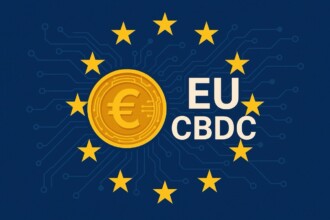The United States has introduced a resolution to the United Nations (UN) that promotes safe, secure, and trustworthy artificial intelligence systems.

In this case, Washington is acting in the context of an effort to harmonize global regulations that would help solve legal problems related to ensuring national security and guaranteeing the realization of human rights against the background of the rapid development of machine intelligence, which is actually forming a new technological reality with specific features that affect the processes taking place in the objective being world.
The resolution addressed to the General Assembly calls on UN members to support a responsible and inclusive approach in the area of artificial intelligence. In this case, the formation of a system of norms for the development of AI is a priority. The initiative of the United States provides for the launch of internal regulatory and governance mechanisms. It is worth noting that the co-authors of the resolution are representatives of more than 50 countries. Also, an important circumstance is that the initiative, in case of its transition to the category of official UN documents, will not be binding.
It is worth noting that the specificity of artificial intelligence as a technology lies in the fact that, with a high degree of probability, in the foreseeable future it may become an independent functionary in certain spheres of activity. The ability to think independently, which is one of the main areas of AI developers’ efforts, provides a certain degree of autonomy in the context of governability. For this reason, it is logical for governments to form a system of control and regulation, within which mechanisms will function to ensure that artificial intelligence in its operating process will remain within the limits beyond which it either transforms into a source of threat or becomes a partially unknown component of the digital world.
Washington calls for the creation of effective safeguards for the use of AI, including physical systems, security systems, and risk management algorithms. The resolution also stipulates that private companies operating in the artificial intelligence industry should comply with international and domestic laws.
It is worth noting that in the United States, there are currently no strict rules governing operation firms developing AI. At the same time, there is a discussion in Congress about the need to implement appropriate measures. In other countries, work in this direction is being carried out more intensively. China has implemented strict rules in the sphere of artificial intelligence. The European Union also approved the most comprehensive standards in the AI industry this week.
Linda Thomas-Greenfield, the US Envoy to the UN, said that since artificial intelligence technologies are developing rapidly, countries have the need and unique opportunities to meet this moment with collective action, separately noting that consensus on the relevant issue will be able to spread the benefits of advanced technology in all regions and at all levels of development.
Some American lawmakers insist that Washington should become a world leader in AI regulation. In this context, they pay attention to Beijing, which is making more intensive traffic in the appropriate direction.
As we have reported earlier, Nvidia Faces High Investor Expectations at AI Conference.









